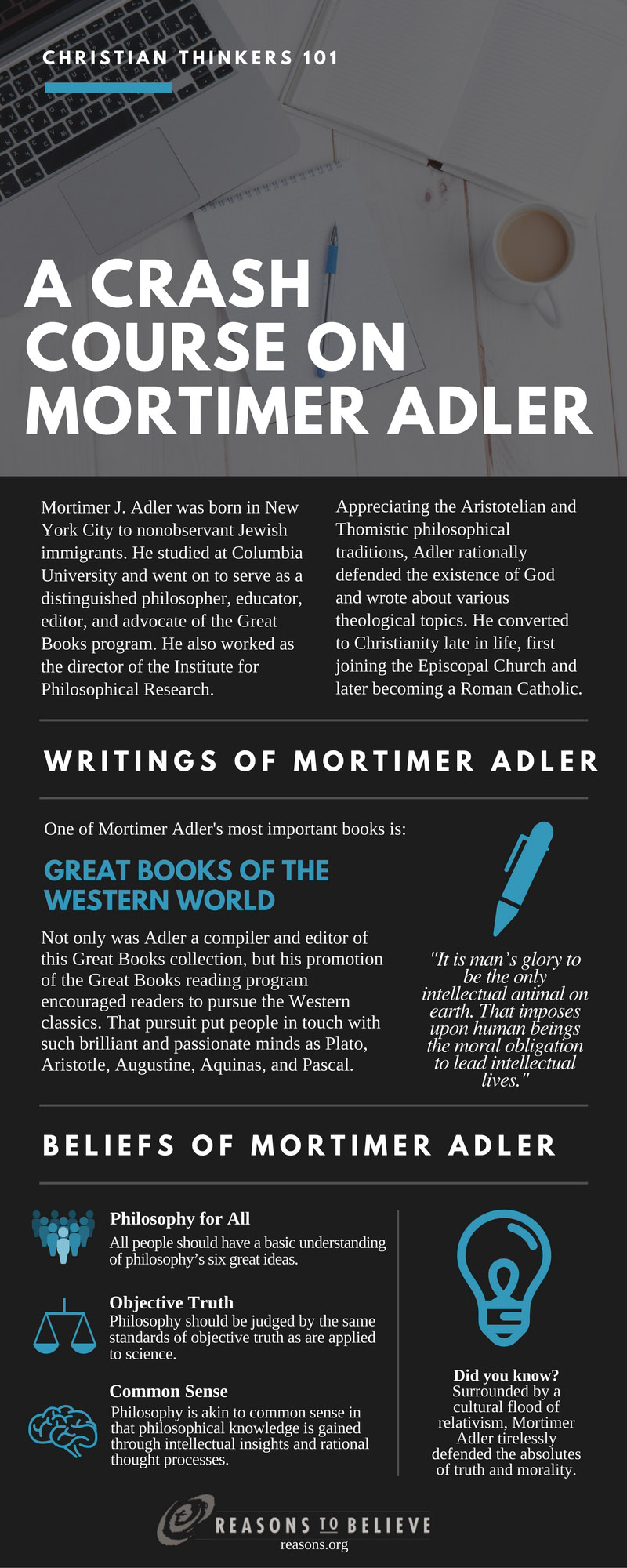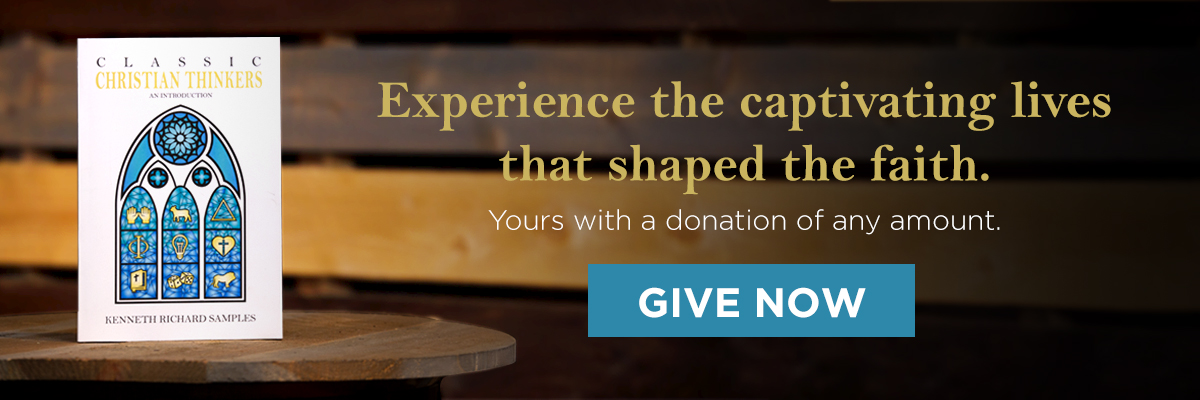Christian Thinkers 101: A Crash Course on Mortimer Adler
–Mortimer J. Adler
Mortimer Adler was one of the most influential philosophers and educators of the 20th century, but what exactly did he believe and what did he contribute to his fields of study? Here’s your crash course on the life and accomplishments of Mortimer Jerome Adler—and why he still matters today.
Mortimer Adler was one of the most influential philosophers and educators of the 20th century, but what exactly did he believe and what did he contribute to his fields of study? Here’s your crash course on the life and accomplishments of Mortimer Jerome Adler—and why he still matters today.
Who Was Mortimer Adler?
Mortimer J. Adler (1902–2001) was born in New York City to nonobservant Jewish immigrants. He studied at Columbia University and went on to serve as a distinguished philosopher, educator, editor, and advocate of the Great Books program. He chaired the board of editors of Encyclopaedia Britannica and was the editor of the Great Books of the Western World. He also worked as the director of the Institute for Philosophical Research. Appreciating the Aristotelian and Thomistic philosophical traditions, Adler rationally defended the existence of God and wrote about various theological topics. He converted to Christianity late in life, first joining the Episcopal Church and later becoming a Roman Catholic.
What Did Mortimer Adler Write?
With more than 60 books to his credit as writer and editor, Adler is a truly prolific author. His most influential works were the Great Books of the Western World series and his personal writings that sought to reform education and promote the life of the mind among all people.
His promotion of the Great Books reading program encouraged readers to pursue the Western classics, including works of literature, philosophy, science, and politics. That pursuit put people in touch with such brilliant and passionate minds as Plato, Aristotle, Augustine, Aquinas, Pascal, and others. Adler challenged all to read the original writings of these great thinkers and glean the wisdom of their books—books which have truly stood the test of time.
Adler’s own books How to Read a Book (a perennial bestseller) and How to Speak, How to Listen are remarkable works in terms of studying the fields of reading and rhetoric. His books The Paideia Program and Reforming Education have sought to bring a truly liberal education to all people.
What Did Mortimer Adler Believe?
Here are three broad points about philosophy that Adler passionately articulated:2
- He believed that philosophy was for every person and that all people should have a basic understanding of philosophy’s six great ideas: truth, goodness, beauty, liberty, equality, and justice. Adler came to see that all six of these great ideas are core elements of the historic Christian world-and-life view.
- He believed that philosophy should be treated as a distinct branch of knowledge and be judged by the same standards of objective truth as are applied to science. Adler’s primary tests for truth include coherence, correspondence, and pragmatic evaluations.
- He believed that philosophy was akin to common sense in that philosophical knowledge and wisdom are gained through intellectual insights and rational thought processes.
Why Does Mortimer Adler Matter Today?
Adler has been criticized for not including more non-Western authors in the Great Books series. But, first as a theist and then later as a Christian philosopher, Adler left an intellectual legacy that will influence many generations to come. Surrounded by a cultural flood of relativism, he tirelessly defended the absolutes of truth and morality. His life work in philosophy and education exposed many to the rich marketplace of ideas that forms the intellectual history of Western civilization.
Evangelical Christians can learn much from the man who may have been the most educated person of the twentieth century. For example, studying Adler’s amazing work How to Read a Book can help all believers become better students of the greatest of the great books—the Bible.
Other articles in the Christian Thinkers 101 series: St. Augustine; C. S. Lewis; Blaise Pascal; St. Anselm; St. Athanasius; St. Thomas Aquinas; Jonathan Edwards; Søren Kierkegaard; St. Bonaventure; Martin Luther; John Calvin; Irenaeus; Tertullian; St. Basil; St. Jerome; Justin Martyr; Walter Martin; Ronald Nash
Reflections: Your Turn
Adler significantly influenced my approach to reading as well as my pursuit of the life of the mind. Who are your intellectual role models? Visit Reflections on WordPress to comment with your response.
Resources
- Those interested in Adler’s conversion to Christianity will want to read his brief spiritual autobiography, Philosophers Who Believe: The Spiritual Journeys of 11 Leading Thinkers.
- Those who would like to know more about Adler and his body of work may contact The Center for the Study of the Great Ideas.
- Here is a memorial article that I wrote about Mortimer Adler: “A Salute to the General of Education: Mortimer J. Adler.”
Endnotes
- Mortimer J. Adler, Intellect: Mind Over Matter (New York: Collier Macmillan, 1990), 185.
- For a summary of Adler’s basic philosophical ideas, see “Mortimer J. Adler: An Overview of His Main Philosophical Insights,” School of Cooperative Individualism, last modified April 2006, https://www.cooperative-individualism.org/adler-mortimer_an-overview-of-his-main-philosophical-ideas-2006.htm.








